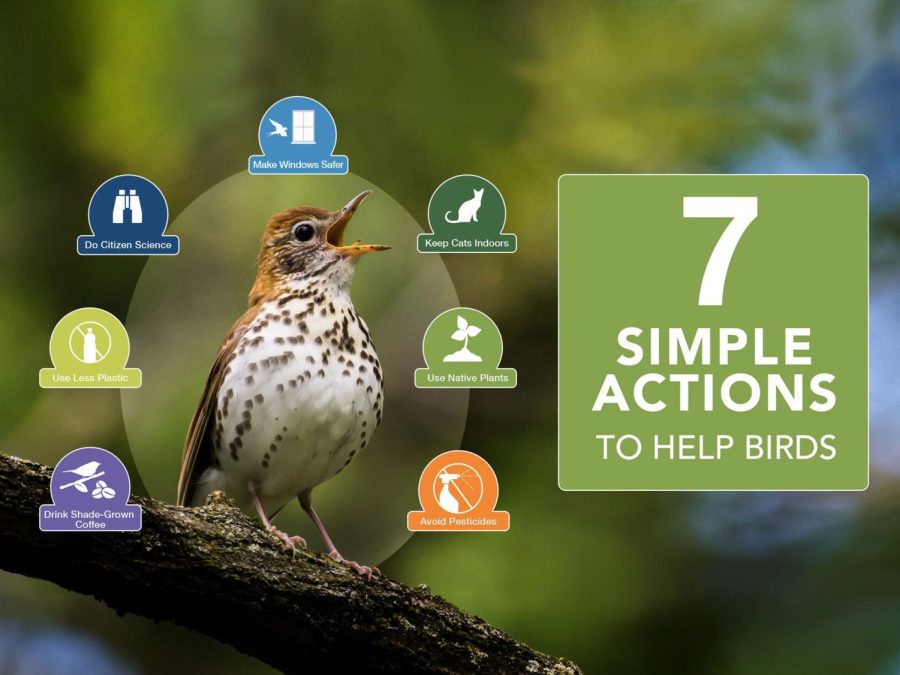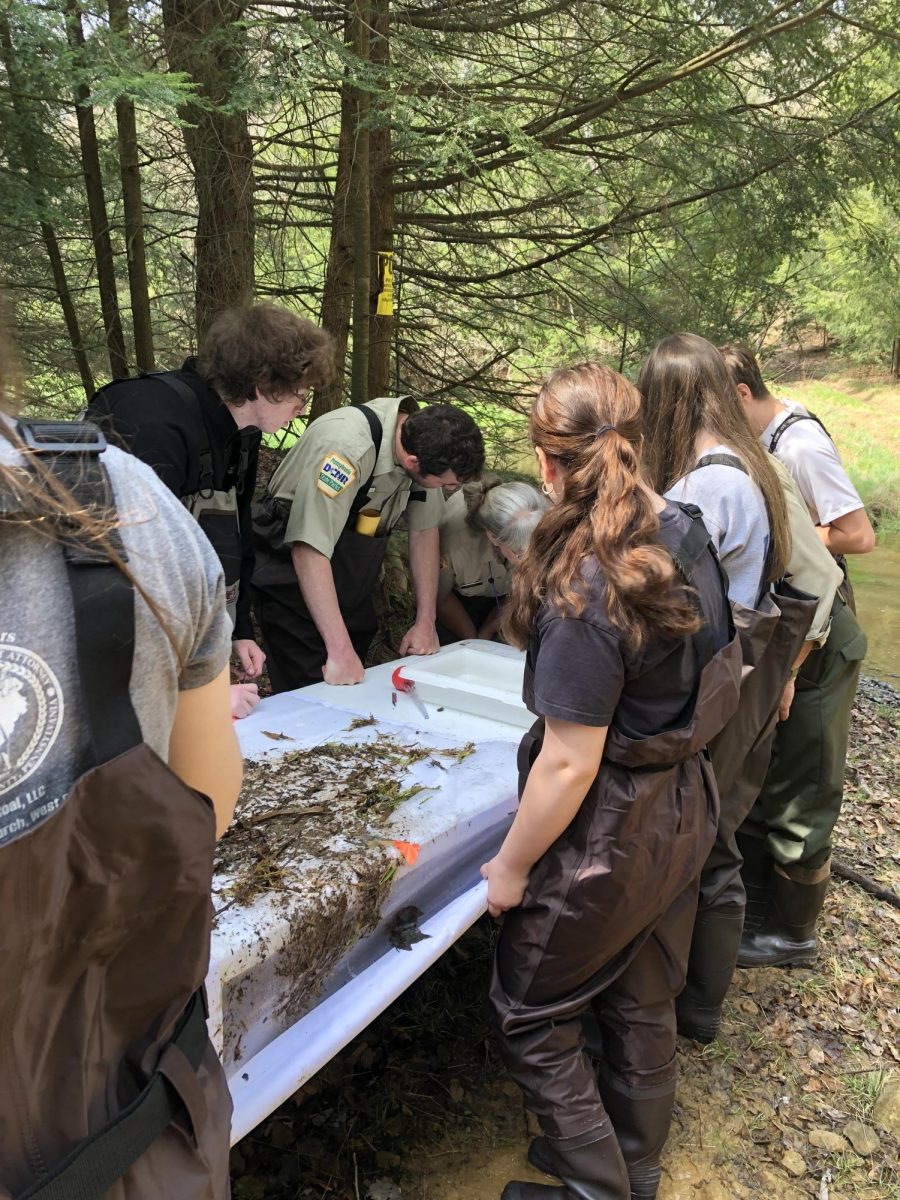Birds in North America are not doing as well as many people may have thought. The North American bird population “Has lost more than 1 in 4 birds in the last 50 years,” according to the National Audubon Society, and the cause is almost entirely because of humans. Outdoor cats, windows, invasive species, habitat loss, and pesticides are also significant causes of bird fatalities.
The first thing humans can do is drink shade-grown coffee. Drinking shade-grown coffee is a direct way to fund habitat conservation in tropical areas and support local economies. Songbirds and many other birds North Americans found in summer and spring spend their winters in tropical regions and coffee plantations in South America.
A significant thing to do is make windows safer for birds. Nearly 600 million birds die a year in the U.S. alone. “At night, lighted windows attract and kill migrating birds; during the daytime, windows reflect foliage or sky, encouraging birds to fly into them. So turn off lights at night, and explore options like window tape and ‘zen curtains’ to keep birds away from your windows during the day,” says The Cornell Lab of Ornithology.
Another thing you can do is keep cats indoors. Outdoor and feral cats kill over two billion North American birds each year. But even for those who still do not care about the death of all these birds, cats have a poor quality of life when left outside. Outdoor domesticated cats live shorter and harsher lives and often suffer from tapeworms and diseases. Not to mention fighting other cats, predatory attacks, harsh winters, and being run over by cars. An important note is that most bird enthusiasts are not against cats. Many people have cats, but keeping them inside is thousands of times more beneficial than keeping them outside.
The last few actions to take are using less plastic and recycling more. Recycling is something every individual should do. Plastics in our seas disrupt food chains and offset ocean-reliant birds. It is impossible in the modern world to reduce plastic entirely, but you can reduce usage and recycle with little change in your day-to-day life. Aluminum cans, plastic bottles, glass bottles, cardboard, and paper are some of the easiest things to send to your local recycling center.
In conclusion, you can reduce plastic use, keep cats indoors, make windows safer, and drink shade-grown coffee to help save the lives of billions of North American birds. Visit https://www.birds.cornell.edu/home/seven-simple-actions-to-help-birds/ for more information on how to help.
Resources: The Cornell Lab of Ornithology
https://www.birds.cornell.edu/home/get-involved/10-ways-to-help-birds/
https://www.birds.cornell.edu/home/seven-simple-actions-to-help-birds/
















